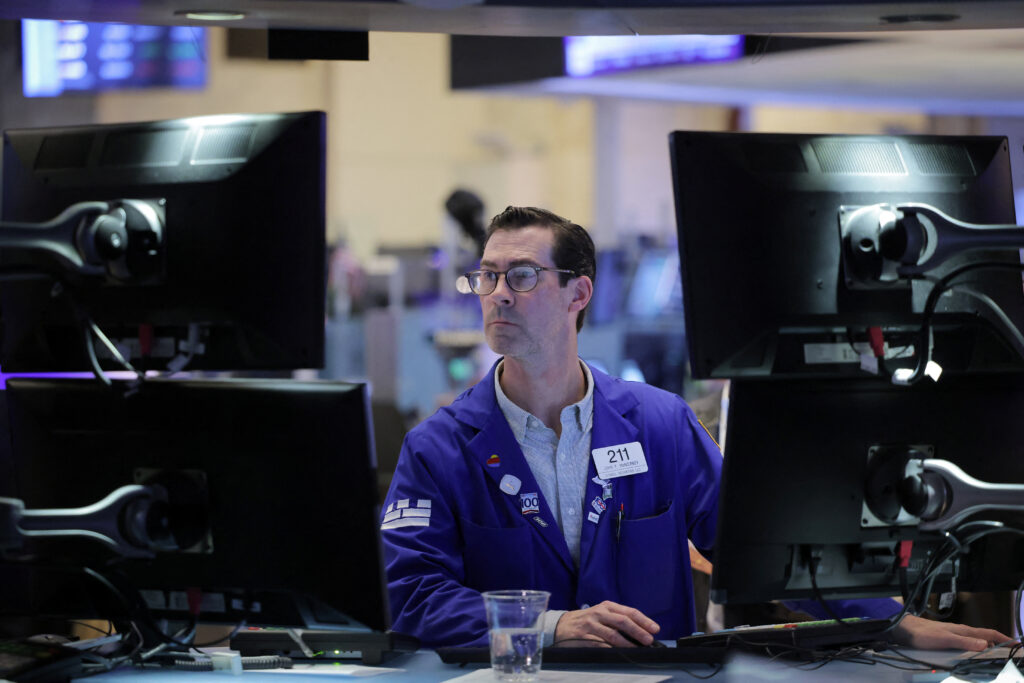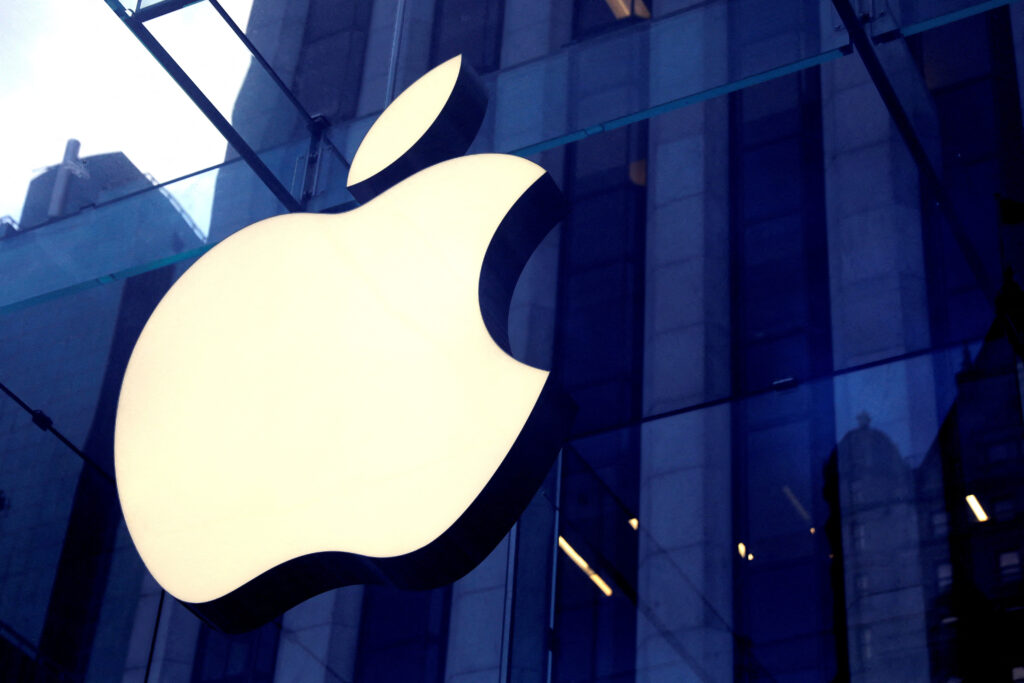Imagine you have $10 for a delicious burger. But next month, the same burger might cost $10.50 due to rising prices.
That’s inflation in action!
Inflation is the ongoing increase in prices of goods and services, slowly eroding your money’s buying power.
The US stock market, a vital part of the economy, is where companies sell shares to raise money. Stock prices are generally tied to company performance.
But here’s the twist: inflation can have a complex impact on these prices.
In this blog, we’ll explore this puzzle. We will see how inflation in the US currently, which is at a 40-year high of 3.5% as of March 2024, according to a Bureau of Labor Statistics press release, can be a double-edged sword for stocks.
We’ll delve into the potential downsides and surprising upsides of inflation for investors.
The Two-Sided Coin: Inflation’s Effects on Stocks
The impacts of inflation are like a double-edged sword for the stock market. Let’s see how it impacts in both positive and negative ways.
Negative Impacts
- Decreased Investor Purchasing Power: As inflation rises, the value of your cash decreases. For example: Imagine you have $10,000 to invest. At 8.5% inflation, a year later, your $10,000 buys 8.7% less stock. This reduces your buying power and potential returns.
- Rising Interest Rates: The Federal Reserve typically raises interest rates to combat inflation. Higher interest rates make borrowing more expensive for businesses, potentially hindering their ability to invest in expansion or new projects. This can ultimately slow company growth and reduce profits, impacting stock prices.
- Uncertainty and Volatility: Unexpected or high inflation can create significant uncertainty in the market. Investors become hesitant, leading to increased volatility. This can result in sudden price swings and potential sell-offs as investors seek safer havens for their money.
Positive Impacts (with limitations)
- Increased Company Profits (with limitations): Companies can sometimes raise prices to offset inflation, potentially boosting profits in the short term. However, this strategy can backfire if it reduces consumer demand due to higher prices. Companies strike a balance between maintaining profit margins and keeping customers happy.
- Hedge Against Inflation (be cautious): Some view stocks as a hedge against inflation, meaning they may outperform other assets like bonds. Over time, a company’s earnings may rise with inflation, leading to higher stock prices. However, this is not guaranteed, and dividends (fixed payouts to shareholders) may not keep pace with inflation in the short term.
It’s crucial to remember that the relationship between inflation and stocks is complex and depends on factors like the type of stock, the severity and duration of inflation, and the overall economic climate.
The positive impacts mentioned above are not always guaranteed and may only apply to specific sectors or companies.
Stock Market Performance in Different Inflationary Environments
The effects of inflation on stocks aren’t a one-size-fits-all situation. Understanding how different inflation levels affect the market can help investors position their portfolios strategically. Here’s a breakdown of stock market performance in various inflationary environments:
Low and Stable Inflation (ideally 1-3%)
This scenario is generally optimistic for stocks. Here’s why:
- Predictable Environment: Low and stable inflation allows businesses to plan for the future more accurately. They can make informed pricing, production, and investment decisions, fostering steady corporate growth.
- Consumer Confidence: When inflation is under control, consumers feel more confident about their purchasing power. This translates to increased spending, which benefits companies and ultimately boosts stock prices.
- Favorable Interest Rates: The Federal Reserve will likely maintain low interest rates in a low-inflation environment. Lower borrowing costs make it easier for companies to invest in expansion and innovation, further propelling growth.
High and Unstable Inflation
High and unpredictable inflation, like the current environment in the US, 3.5% as of March 2024, can significantly impact the stock market. Here’s how:
- Increased Risk and Uncertainty: When inflation is high and volatile, it becomes difficult for businesses to plan and make sound financial decisions. This uncertainty can lead to investor anxiety and market turbulence, causing stock prices to fluctuate wildly.
- Erosion of Profits: Companies may struggle to raise prices fast enough to keep pace with inflation, squeezing their profit margins. This can lead to stagnant or declining stock prices.
- Reduced Consumer Spending: As inflation eats away at disposable income, consumers tend to tighten their belts and decrease spending. This can negatively impact companies’ sales and revenue, ultimately affecting their stock performance.
Strategies for Investing During Inflation
Now that you know the impact of inflation on stocks and how it affects the stock market differently, As an investor, see how you can strategically navigate a high-inflation environment. Here are some key strategies to consider:
Focus on Value Stocks
- Value Investing Philosophy: Value stocks trade for a lower price than their perceived intrinsic value based on earnings, assets, and cash flow. Value investors seek stocks currently undervalued by the market and have the potential for significant price appreciation in the future.
- Inflation’s Impact: During inflation, growth stocks, priced based on future earnings potential, can become riskier as inflation erodes those projected future profits. Conversely, Value stocks may be less impacted by inflation because their prices are already anchored to their underlying fundamentals.
Consider Diversification Across Asset Classes
- Don’t Put All Your Eggs in One Basket: Diversification is essential for any investment strategy but becomes even more crucial during inflationary periods. By spreading your investments across different asset classes, you can mitigate risk and potentially benefit from opportunities in various markets.
- Asset Class Options: Consider including a mix of stocks, bonds, real estate investment trusts (REITs), and commodities in your portfolio. While inflation can erode the value of traditional bonds, certain types of bonds, like Treasury Inflation-Protected Securities (TIPS), can adjust their principal value to keep pace with inflation. REITs may also benefit from inflation as property values rise over time. Commodities like gold and oil can also act as hedges against inflation.
Stay Informed and Adaptable
- Knowledge is Power: Inflation is complex, and its impact on different sectors and asset classes can be dynamic. Staying informed about economic news, Federal Reserve policy changes and market trends is crucial for making informed investment decisions.
- Adapting Your Strategy: As inflation fluctuates, you may need to adjust your investment strategy accordingly. Regularly review your portfolio’s performance and rebalance it to maintain your desired asset allocation. Consider seeking professional financial advice for personalized guidance during these times.
Conclusion
Inflation presents a complex challenge for investors in 2024. While it can erode purchasing power and create market volatility, it offers potential opportunities.
We hope that understanding the “double-edged sword” effect of inflation on stocks will allow you to make informed decisions for your portfolio.
Stay tuned to ABBO News for more insights on the investment world!
Peter Williams, a financial writer with over five years of experience, specializes in covering stock market movements, bond markets, commodities, and macroeconomic trends.










